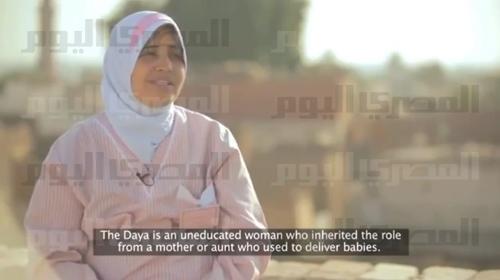
With the world’s population now well over 7 billion, increased pressure is being put on global health resources and services, particularly in the developing world. World Population Day, held annually on 11 July, aims to raise awareness and highlight some of the key issues facing an increasing population.
The theme of this year’s World Population Day was “Universal Access to Reproductive Health Services,” and in honor of the day, the United Nations Population Fund (UNFPA) and the Egyptian Ministry of Health held a press conference in Cairo highlighting some of the major issues in Egypt and what has been done to address them.
“Every day, 800 women die around the world whilst giving birth to a child, according to UN statistics,” said UNFPA Executive Director Babatunde Osotimehin in a press release. “Typically the most joyful moment in a woman’s life [results] in taking the life of so many women worldwide.”
Currently, childbirth related health problems are a significant concern in Egypt, where access to health care services is limited, particularly in rural areas. Egypt has achieved marked improvement in the last 10 years in matters relating to maternal health, but in some rural or impoverished areas, there are still problems. In Minya, for example, only 58 percent of deliveries are attended by medical personnel.
A documentary entitled “The Tuk-Tuk Nurse-Midwife: Reducing Maternal Mortality in Upper Egypt,” was showcased at the conference to show how this issue has been addressed.
“A major aspect of maternal deaths in Egypt is not just from a lack of hospitals or personnel, which is also pertinent, but also an inability for patients who live in rural areas to even get to a hospital,” said Dr. Alaa Sultan, an official from the Health Ministry.
As a result of this inability to access medical services, rural communities often ask “dayas” to visit their homes and deliver children. A daya is an individual who typically has not had formal higher education or Western-style medical training, but may have had a mother or an aunt that was a nurse.
Some feel that dayas are not equipped to handle to complications related to delivery, such as bleeding or infections, but for mothers in some areas of Egypt, there are no other resources.
“Unique problems require unique solutions,” says Sultan.
To counter this lack of resources, the UNFPA and the Health Ministry began a training program to train a “nurse-midwife” in Minya to act in place of the daya. Ibtisam El Khouli is the nurse-midwife featured in the documentary.
To access poor areas with lack of roads, Khouli has employed the use of a tuk tuk. Women in labor can now call Khouli any time of the day on her cell phone, and she comes to their homes to provide professional medical care. In the unlikely case that she cannot deal with a given complication, she will assist the woman in labor to the hospital while providing medical care along the way.
The service has received much positive feedback from new parents and Minya officials.
“The nurse-midwife takes care of you, and has the facilities to deliver a child. It’s far better than a daya,” said a father whose child Khouli had delivered.
“My child was infected in my womb and would’ve died if I had used a daya instead,” said a new mother.
Currently, Khouli delivers two to three babies a day by herself, which is 730-1,095 babies a year. And according to the UNFPA, the maternal mortality rate in Minya has dropped significantly in recent times.
Minya Governor Salah al-Rouby said that he believes “Egypt needs to use the nurse-midwife initiative to make dayas extinct.”
Discussions after the documentary, led by assistant UNFPA representative Magdy Khaled, said that steps are being taken to provide nurse-midwife training programs to all areas around Egypt where maternal mortality is still prevalent.




